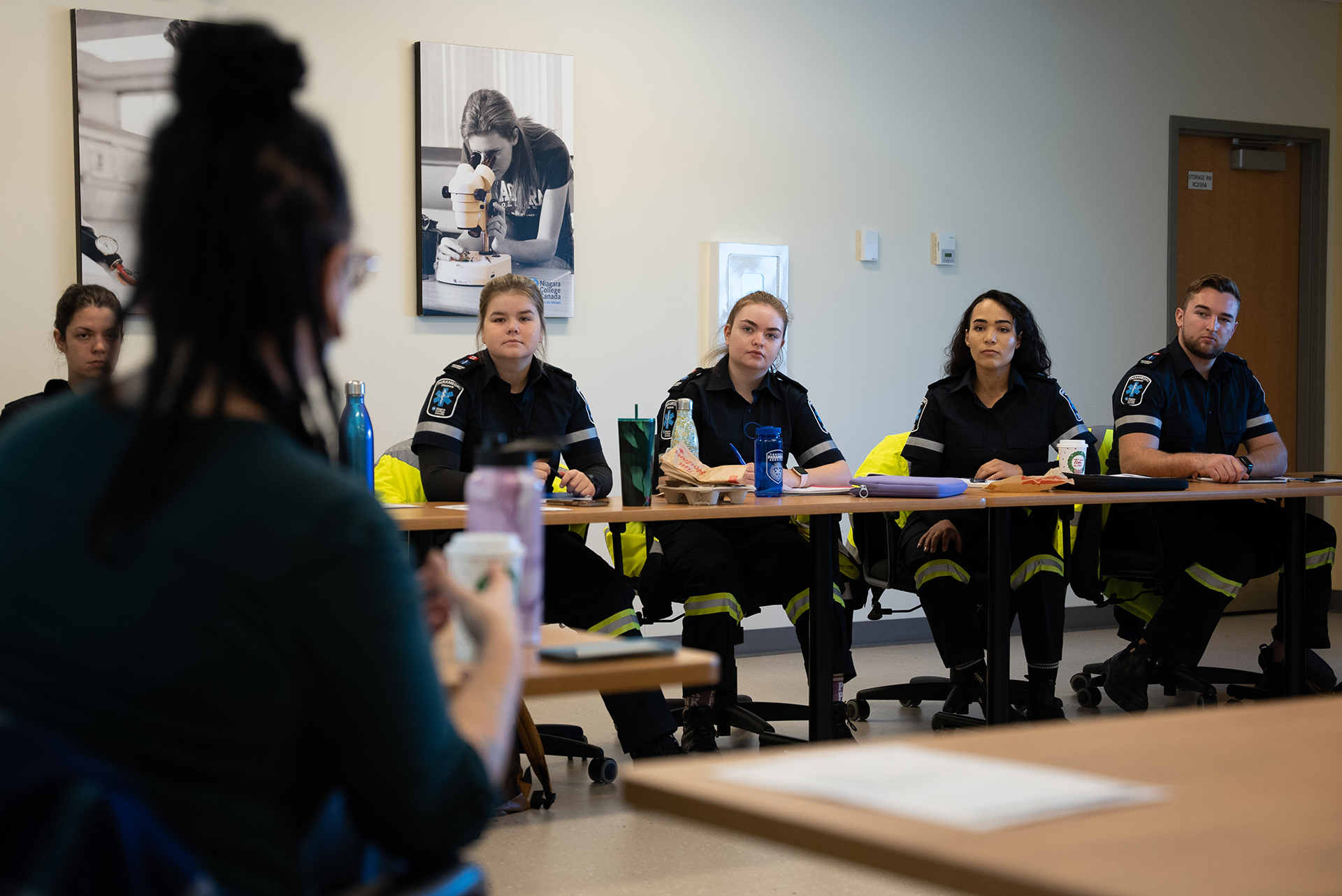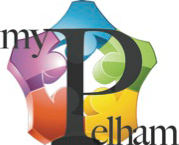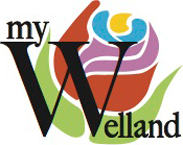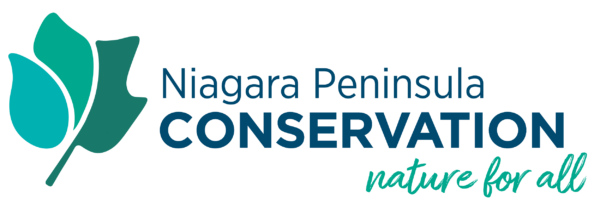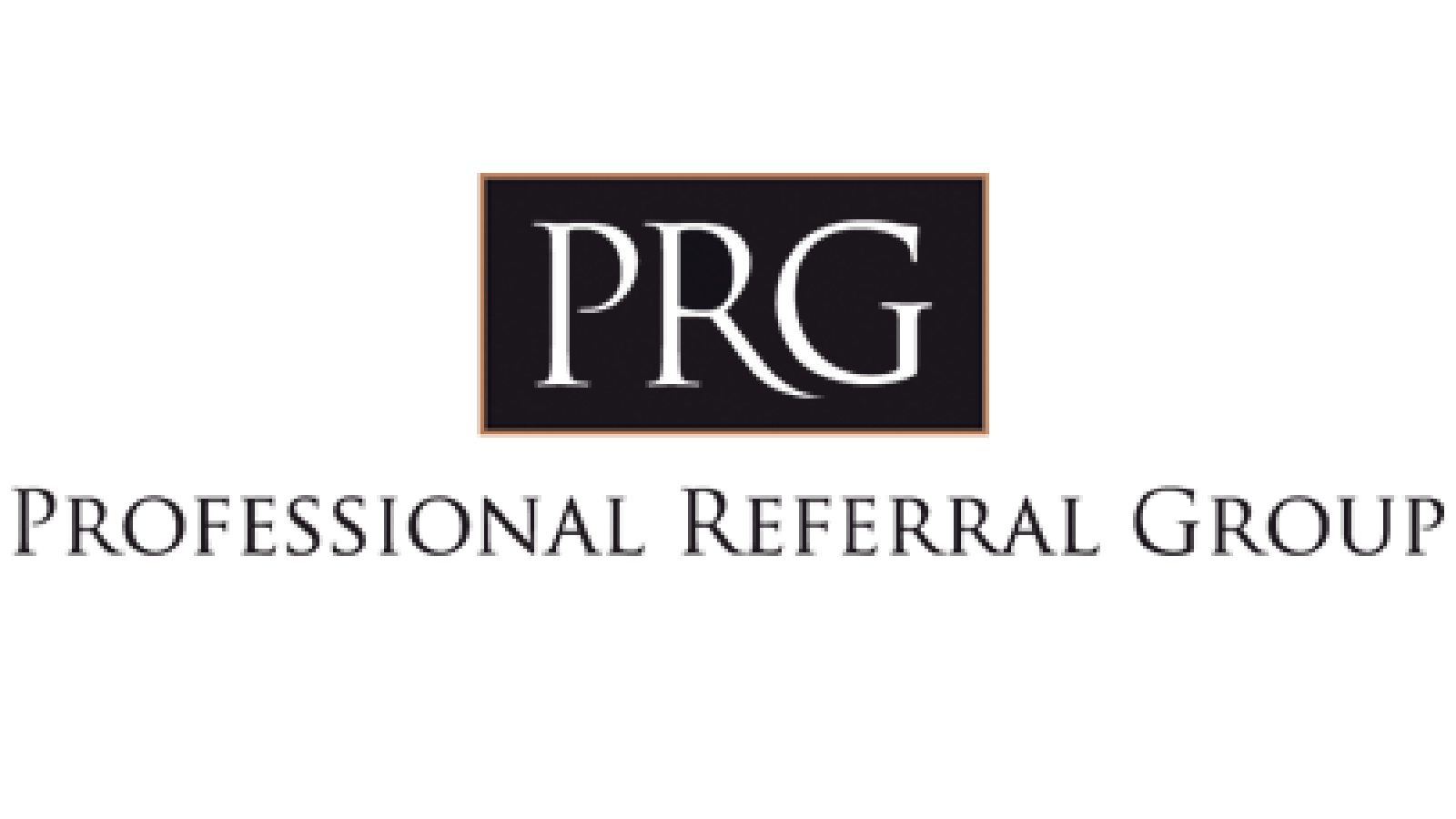Niagara College’s Paramedic program has taken a leap forward when it comes to offering students critical training in palliative care.
Thanks to a new partnership with Pallium Canada, NC is leading the way as the first college in Canada to adopt Pallium’s award-winning Learning Essential Approaches to Palliative Care (LEAP) Paramedic course into their Paramedic program curriculum.
“We’re thrilled to see Niagara College lead the way as the first Canadian college to incorporate LEAP Paramedic into their leading paramedic program,” said Pallium Canada’s Chief Executive Officer, Jeffrey Moat. “We commend their initiative and vision to empower their students to provide high-quality, patient-centred palliative care.”
After incorporating LEAP Paramedic into the Paramedic program curriculum for the first time, 42 second-year students had the chance to complete the training and earn their certification from Pallium Canada for LEAP Paramedic training this Fall term.
“This training is currently offered to working medics and we are the first College to offer this to our students,” said Associate Dean, School of Allied Health, Eva Lemak. “This is critical during a time when there is a shortage of healthcare professionals in hospitals and paramedics can provide palliative care support to patients at home.”
LEAP Paramedic is a blended learning course for paramedics and Emergency Medical Service professionals that teaches the essential practical knowledge, attitudes, and skills to provide a palliative care approach on-site.
The course promotes teamwork, enhances transitions of care, and catalyzes quality improvement initiatives in daily practice and within teams. The modules cover palliative care topics including pain, dyspnea, delirium, palliative emergencies, and more.
“The partnership with Pallium Canada is incredible,” said Nate Alaimo, Instructor and Paramedic Technologist, for NC’s School of Allied Health. “The fact that we can train our students to be part of this initiative is very exciting.”
Alaimo pointed to the need for palliative care training among paramedics, to improve the Paramedic scope of practice in Ontario, and to help give patients access to alternate health care options over emergency rooms – to keep patients comfortable in their own homes, surrounded by their families during end-of-life times.
“As paramedics across the province are shifting away from responding to ‘emergencies only’ and moving toward helping in many community and non-emergency situations, palliative care is one of those areas that Paramedics can make a big difference in patients’ lives, said Alaimo. “This program gives our students the knowledge and assessment skills to assess and treat palliative patients, in turn keeping them out of the ER and in the comfort of their own homes.”
Second-year NC Paramedic student Nick Mortimer said he found the training very helpful.
“Coming into this course, I didn’t realize that palliative care would be a part of this program, but I’m really happy that it is,” he said. “I think it’s awesome that we’re among the first to receive this training off the bat and I think it will help in the long term.”
Paramedic student Rachel Sussman noted that while it can be challenging to have difficult conversations with patients, she has learned that it is important to understand that the majority of people want to stay at home and to gain an understanding of how they would like to be cared for as they progress.
“I definitely think it will be key to this type of job because we see a lot of different types of populations, so getting to be a part of palliative care really gets you the knowledge and understanding,” she said.
“What are these people going through and [what is] the type of care that they really need? That might not always be going to the hospital.”
While the emotional aspect of palliative care can be challenging, Darian Pompa valued the opportunity to complete LEAP Paramedic training as a Paramedic student.
“I think it’s very important to know how to talk to not only the patient but their family … talking to the family is just as important as talking to the patient,” she said.
Pallium Canada’s LEAP training courseware provides practical, inter-professional and evidence-based training in the palliative care approach. LEAP equips health care professionals with the expertise and skills to provide palliative care to patients and families facing life-limiting illnesses in a more timely and effective way.
Pallium Canada is a national, non-profit organization based in Ottawa, Canada. For over 20 years, we have helped healthcare organizations build capacity by providing palliative care education and resources for health care professionals working in different settings. Learn more at pallium.ca.
Niagara College’s School of Allied Health, based at the Welland Campus, offers a two-year Paramedic diploma program, as well as a one-year graduate certificate Advanced Care Paramedic program.
Niagara College offers more than 130 diploma, bachelor degree and advanced level programs; as well as more than 600 credit, vocational and general interest Part-Time Studies courses. Areas of specialization include food and wine sciences, advanced technology, media, applied health and community safety, supported by unique learning enterprises in food, wine, beer, distilling, horticulture, and esthetics. For more information visit niagaracollege.ca.
Photo: Second-year Paramedic students complete an in-class session for Pallium LEAP Paramedic training at the Welland Campus on November 21.

